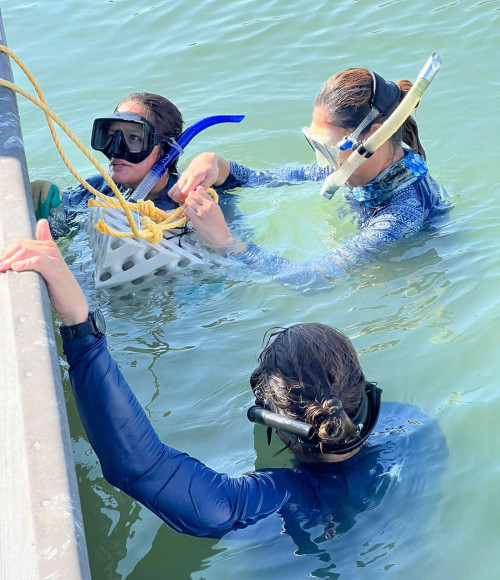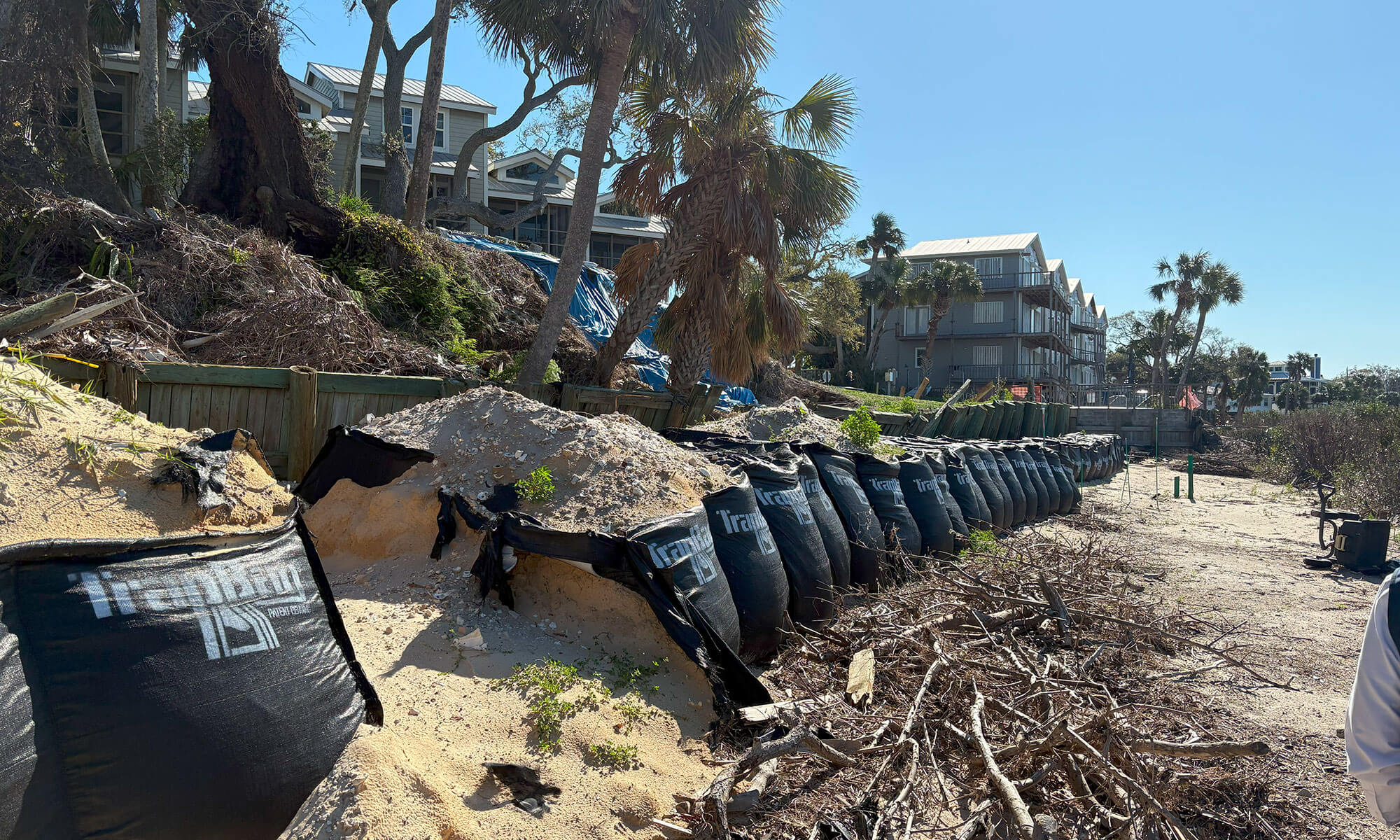The National Academies of Sciences, Engineering and Medicine’s Gulf Research Program and Lever for Change announced on Tuesday a research team from the University of Florida and the University of Texas at Austin as one of 10 finalists for the $50 million Gulf Futures Challenge.
The UF/UT team’s AMERICA project explores a new approach to seawalls using natural materials engineered precisely to benefit the marine ecosystem and protect people and infrastructure from storms. The project offers an alternative to traditional concrete-based seawalls by integrating architected materials — engineered structures designed to mimic natural habitats — with additive manufacturing (3D printing) and autonomous construction technologies.

“With a shared goal between UF and UT teams, this project would have significant impact by redefining coastal protection as both a human and nature investment,” said Xiao Yu, an associate engineering professor with UF’s Engineering School of Sustainable Infrastructure & Environment and one of the project’s leads.
The 10 finalist projects are a collection of bold ideas that apply, translate, and communicate science, engineering, and medical knowledge to address critical challenges in the Gulf Coast region.
Representing all five Gulf states, these 10 projects present creative visions for tackling the urgent challenges of energy security, environmental change, and community well-being, each through a distinct, locally grounded approach. The projects are united by a common goal of creating safer and more resilient communities where people in the Gulf can live, work, and thrive. From addressing flooding to repurposing decommissioned wind turbines, together, they are demonstrating how science can drive practical, people-centered solutions to today’s most pressing challenges.
“The Gulf Futures Challenge finalists exemplify the bold thinking and community-rooted innovation needed to navigate the complex transitions facing our environment, economy and public health,” said Lauren Alexander Augustine, Ph.D., executive director of the Gulf Research Program. “We are proud to support their efforts and see them continue to build their ideas into action.”
The Gulf Futures Challenge received 164 applications from organizations based in Alabama, Florida, Louisiana, Mississippi and Texas. Each entry was subject to participatory reviews and multiple rigorous evaluations by experts from science, engineering, and medicine. The finalists collectively represent all five states along the Gulf Coast and were selected based on four key criteria: whether they were impactful, bridging knowledge to action, innovative, and inclusive in their proposed approaches.
Each of the 10 finalist teams will receive an initial project development grant of $300,000 and technical assistance to strengthen their proposals. After submitting revised applications, two finalists will be awarded $20 million each to implement their solutions. The remaining eight will be eligible for up to $875,000 in additional project development support.

